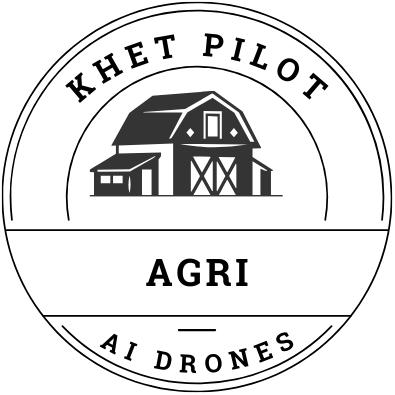Innovation revolutionizes agriculture by bringing continuous developing technologies that have improved efficiency, sustainability, and productivity in this industry. One such recent development is plant breeding with drones. These UAVs transform the monitoring of crops, data collection, and decision-making among plant breeders, making breeding programs more effective and accurate.
How Drones are Transforming Plant Breeding
The process of plant breeding was always time-consuming. It required robust monitoring of the plants, selection of traits, and many years. Traditionally, it meant visiting the field, collecting hours of data, and doing detailed analysis. Presently, the advent of drones in breeding has made it faster, more reliable, and more scalable.
Breeders using drones have multispectral, thermal, and infrared cameras. These drones collect real-time information from the crops regarding health, growth patterns, and environmental factors. This data is evaluated to determine pest infestations, water stress, and nutrient deficiencies, ultimately allowing the breeder to take timely actions to maximize plant growth.
Benefits of Plant Breeding with Drones
- Efficient Field Monitoring: One of the key benefits of using drones in breeding is the real-time monitoring capability. Instead of walking through fields and visually inspecting crops, drones can capture high-resolution images of entire breeding plots in a fraction of the time. This provides breeders with a comprehensive view of crop performance, along with changes over time.
- Enhanced Data Accuracy: Drones deliver accurate data that is difficult to achieve through conventional methods. Equipped with specialized sensors, they can capture detailed information on plant health, soil conditions, and environmental factors. Breeders can leverage this data to make informed decisions, resulting in better plants and a more efficient breeding process.
- Real-Time Insights for Faster Decisions: Using drones in plant breeding provides instant access to data that can be analyzed immediately. This enables faster decision-making and quicker responses if issues are detected, such as identifying pests or diseases early, before they spread.
- Precision and Scalability: Drones offer exceptional precision in breeding by enabling breeders to identify the best-performing plants. Additionally, they can support large-scale breeding programs, collecting data from multiple sites and covering vast areas of land without requiring additional staff.
Key Insights from Drone-Based Plant Breeding Research
The table below summarizes research on using drones for plant breeding. It highlights how the AirMeasurer platform links drone-based phenotyping with genetic markers to improve crop breeding efficiency.
|
Aspect |
Details |
|
Research Focus |
NIAB and partners developed AirMeasurer, a platform that links drone-based phenotyping with DNA markers for improved breeding. |
|
Technology Used |
Drones collect 2D/3D images; AI and computer vision analyze traits like plant height, canopy coverage, and growth stages.
|
|
Platform Purpose |
AirMeasurer automates trait analysis, enabling better selection of plants and discovery of genetic markers for crop improvement. |
|
Application |
Drones and AirMeasurer aid in identifying key agronomic traits, enhancing genetic mapping and supporting crop variety testing. |
|
Cost-Effectiveness |
The platform uses low-cost drones, providing an affordable solution for large-scale phenotyping in crop research. |
FAQs
How does plant breeding with drones improve efficiency?
Drones allow breeders to quickly and accurately capture snapshots of large areas, making plant breeding at scale more efficient. The data collected by drones offers valuable information in real time, enabling breeders to make decisions in a shorter time frame and spend less time on field visits.
What types of data can drones collect for plant breeding?
Drones can collect a wide range of data, including high-resolution images, soil moisture levels, plant canopy structure, temperature variations, and overall plant health. These insights help plant breeders evaluate crop performance and identify potential issues early on.
Are drones suitable for both small and large-scale plant breeding programs?
Yes, drones are suitable for both small scale and larger plant breeding programs. The scalability of drones allows breeders to cover multiple sites or large fields effectively, without requiring extensive manpower.
Conclusion
Drones are evolving into technologies with increasing potential for breeding. When combined with AI and machine learning, drones can soon bring greater precision to plant selection by automating the analysis of extensive datasets, thereby improving efficiency and targeting in breeding programs.
Additionally, as drones become more affordable and accessible, smallholder farmers and breeders will gain from this technology, making plant breeding with drones a game-changer for agriculture worldwide.
The era of drones has transformed plant breeding, offering efficient, accurate, and precise monitoring of crops and their environments. Drone technology is reshaping the future of farming by enabling real-time data collection, improved decision-making, and scalable breeding programs. With these advancements, plant breeders are gaining access to increasingly powerful tools, accelerating the development of more resilient, productive, and sustainable crops.
